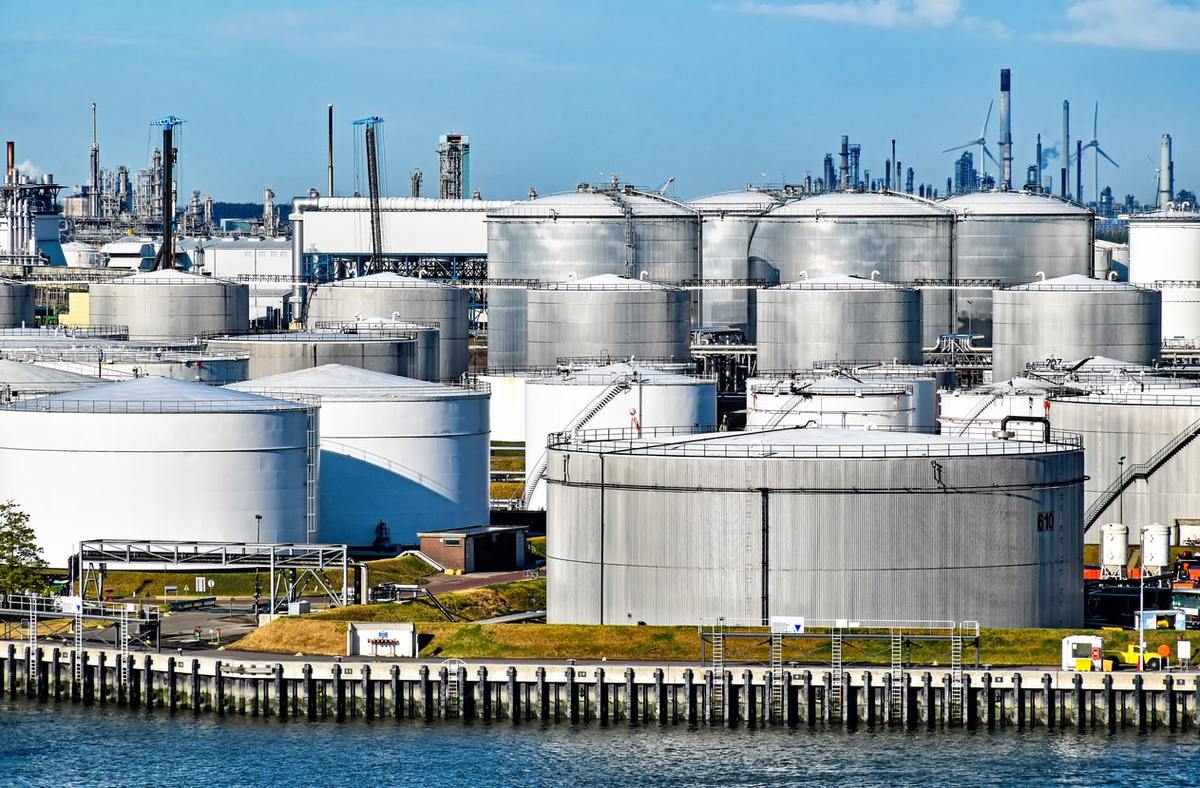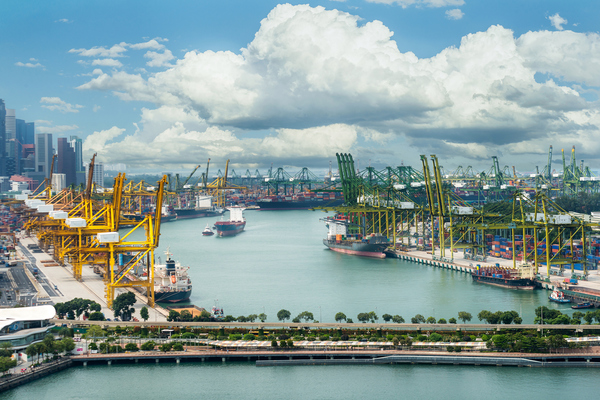Europe & Africa Market Update 28 Nov 2023
Regional bunker benchmarks have mostly gained tracking Brent’s upturn, and rough weather conditions have impacted bunkering in Istanbul.
 PHOTO: Oil storage tanks in the oil and bunkering hub of Rotterdam, Netherlands. Getty Images
PHOTO: Oil storage tanks in the oil and bunkering hub of Rotterdam, Netherlands. Getty Images
Changes on the day to 09.00 GMT today:
- VLSFO prices up in Durban ($4/mt), and down in Rotterdam and Gibraltar ($2/mt)
- LSMGO prices up in Durban ($42/mt), Rotterdam ($24/mt) and Gibraltar ($3/mt)
- HSFO prices up in Rotterdam ($9/mt) and Gibraltar ($3/mt)
LSMGO prices across all three ports have climbed in the past day. Rotterdam’s LSMGO gains have outpaced that of Gibraltar’s LSMGO. The price moves have narrowed Rotterdam’s LSMGO discount to Gibraltar by $21/mt to $54/mt now.
VLSFO availability has tightened in the ARA hub. Lead times of 5-7 days are recommended to ensure full coverage from all suppliers. Similar lead times of 5-7 days are recommended for HSFO, while 3-5 days for LSMGO.
Meanwhile, adverse weather conditions in Istanbul have impacted bunker operations in the Turkish port. Strong winds and heavy swells have prevailed in the region since the end of last week, the source adds.
Strong winds ranging between 25 to 44 knots are forecast to hit Istanbul in periods between today and tomorrow, which could further complicate bunker deliveries there.
Weather disruptions also prevail in Malta, where bunkering remains restricted to bunkering area four, port agent MH Bland says. Most suppliers are reporting delays in bunkering because of rough weather, MH Bland adds. The region is currently experiencing strong wind gusts of up to 24 knots. The weather is forecast to remain rough tomorrow as well to limit bunkering.
Bunkering is progressing smoothly in Ceuta, where five vessels are due to arrive for bunkers today, according to shipping agent Jose Salama & Co.
Brent
The front-month ICE Brent contract has inched $0.50/bbl higher on the day, to trade at $80.69/bbl at 09.00 GMT.
Upward pressure:
Brent futures remained supported amid expectations that OPEC+ would extend its voluntary production cuts into 2024.
OPEC+ is scheduled to hold a virtual meeting on 30 November to discuss output policy for next year.
The current situation of the crude oil market seems to be “undervalued” as energy demand typically peaks during the fall and spring seasons, analysts said. “Once we get through the shoulder [winter] season we’re going to see significant drawdowns in crude supplies in the coming weeks and months,” said Price Futures Group’s senior market analyst Phil Flynn.
Besides, OPEC’s largest producer Saudi Arabia could “try to shock the market” with an additional 1 million b/d lollipop cut, Flynn added.
“The group [OPEC+] has always found a way to get an agreement over the line before, even if that means the biggest producers taking on more of the additional commitments,” commented OANDA’s senior market analyst Craig Erlam.
Downward pressure:
Meanwhile, Brent futures felt some downward pressure amid speculations of a dispute between Saudi Arabia and other OPEC member nations over the group's production targets for next year. The group’s joint ministerial meeting has allegedly been pushed back to 30 November because of this.
“The OPEC+ meeting will be this week’s most impactful event in oil markets,” Erlam said. The meeting got delayed by four days, “so there’s clearly some disagreement within the alliance,” he added.
Additionally, concerns about surplus supplies in the oil market have put a lid on Brent’s price. There are wide expectations that Angola, Nigeria, and Iran will increase their production levels in 2024.
By Manjula Nair and Aparupa Mazumder
Please get in touch with comments or additional info to news@engine.online

Contact our Experts
With 50+ traders in 12 offices around the world, our team is available 24/7 to support you in your energy procurement needs.




